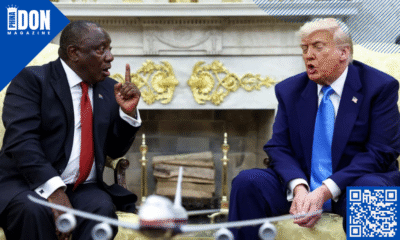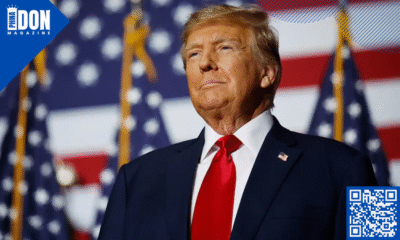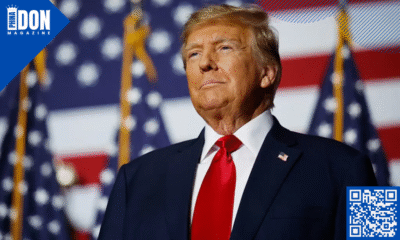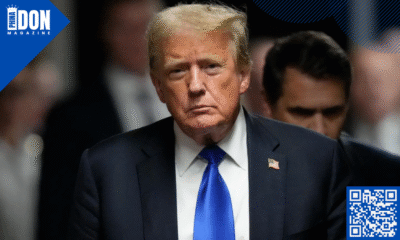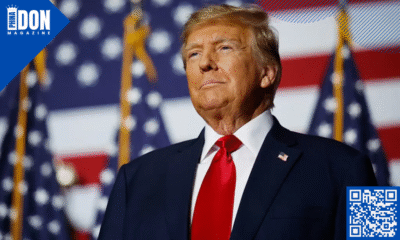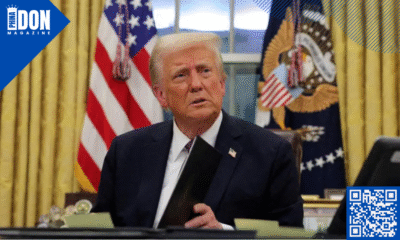Foreign
Diplomatic Dynamics: Vance’s Assertion on Trump and the Ukraine-Russia Conflict.
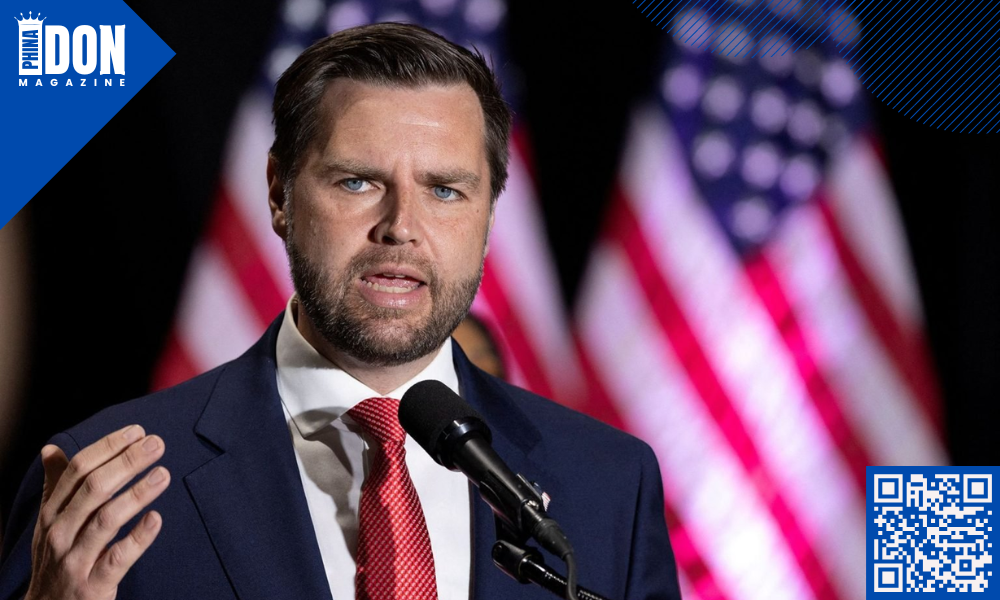
In a recent statement, U.S. Vice President JD Vance made a bold declaration regarding the ongoing war between Ukraine and Russia, asserting that former President Donald Trump possesses the unique capability to bring an end to the conflict. Vance characterized Trump as “the ultimate deal maker,” suggesting that his leadership could facilitate a resolution to the hostilities that have persisted for over two years.
In his post on X, Vance emphasized the importance of American interests, noting that, “American troops should never be put into harm’s way where it doesn’t advance American interests and security.” He underscored a critical point: the current conflict is fundamentally a bilateral issue between Russia and Ukraine.
However, this assertion comes in stark contrast to the views expressed by Ukrainian President Volodymyr Zelensky. Following Vance’s comments, Zelensky reiterated Ukraine’s position that any negotiations aimed at concluding the war must include Ukrainian participation. He firmly articulated that agreements made between Moscow and Washington without Kyiv’s involvement would be unacceptable, underscoring Ukraine’s sovereign right to be an integral part of the peace process.
Adding to the complexity of the situation, recent comments from Trump’s former defense secretary raised potential challenges for Ukraine’s aspirations towards NATO membership. This has further fueled concerns within Kyiv about the direction of international support and the nature of future negotiations.
As discussions regarding the future of Ukraine and its relationship with both Russia and the United States unfold, the necessity for a comprehensive and inclusive diplomatic approach becomes increasingly apparent.
Entertainment
Nigerian Union in Denmark to Host 2025 Summer Picnic at Fælledparken, Copenhagen Denmark.

As the summer sun graces Copenhagen, the Nigerian Union in Denmark is gearing up for an unforgettable gathering to bring together Nigerians living in and around the city. On July 27th, 2025, from 2pm to 6pm, Fælledparken will be abuzz with laughter, camaraderie, and a joyous display of culture as the Union hosts its annual summer picnic.
Ambassador T. A. Elias Fatile, PHD, CDAai, the Head of Mission at the Embassy of Nigeria in Stockholm, Sweden, will attend the event. While the Queen Phinadon will serve as the MC at the Event. This well-anticipated event isn’t just about fun—it’s about weaving even stronger threads of connection amongst members of the Nigerian community in Denmark. We find it inspiring to see initiatives like this that go beyond mere socializing to focus on fostering unity, peace, and a continued sense of belonging so far from home. There’s a unique magic when familiar faces gather under the open sky, share stories, and celebrate with traditional warmth.
To foster a dynamic and engaged community for Nigerians in Denmark, They aim to: provide support to members facing challenges; encourage collaboration in social, economic, cultural, and political spheres between Nigeria and Denmark; and actively contribute to Nigeria’s development. Further aims and objectives are detailed in our constitution, accessible to members.
So, what’s on the agenda this year? For starters, there will be an energetic football competition—because, let’s be honest, nothing says “community” like a friendly match where everyone is a superstar, at least for a moment! If football’s not your thing, don’t worry: interactive games, the quirky and always amusing king game, dance sessions, and plenty more activities will keep spirits high and bring out hearty laughs from attendees of all ages.
And it wouldn’t be a true Nigerian get-together without music and dance! Picture a pop-up dance party on the green, with classic beats and contemporary hits bouncing through the park, inviting everyone to join in. For newcomers, these moments offer a gentle entry into the circle, and for longtime members, they provide the comfort of nostalgia.
As picnic baskets open, treats are shared, and new memories are created, the day promises not just entertainment but meaningful connections—some that may last a lifetime. Whether you’re bringing your family, friends, or just your good vibes, this is your invitation to celebrate, reconnect, and bask in the collective spirit of Nigerians in Denmark.
Mark your calendars for July 27th, gather your game face (and dancing shoes), and get ready to be part of something special in Fælledparken. We can almost hear the laughter already—and we wouldn’t want anyone to miss out on it!
Foreign
UK Deploys Military Assets to Middle East Amidst Escalating Iran-Israel Conflict.

In response to the escalating conflict between Iran and Israel, the United Kingdom is deploying fighter jets and other military assets to the Middle East. Prime Minister Keir Starmer announced the deployment, stating it is for “contingency support.”
The Prime Minister has engaged in discussions with both US President Donald Trump and Israeli Prime Minister Benjamin Netanyahu, emphasizing the need for de-escalation. Foreign Secretary David Lammy has also communicated with Iranian officials, urging restraint and emphasizing the importance of protecting civilians.
The UK’s actions reflect a commitment to regional stability and a concerted effort to prevent further escalation of the conflict. Ongoing discussions with allies aim to de-escalate the situation and promote a peaceful resolution.
Foreign
A person who attacked and killed a Nigerian schoolboy with a sword in the UK has been sentenced to life in prison.

Marcus Monzo, a 37-year-old of Spanish-Brazilian descent, has been sentenced to life imprisonment with a minimum term of 40 years for the murder of 14-year-old Daniel Anjorin in Hainault, northeast London. The sentencing follows Monzo’s conviction for the unprovoked and brutal attack on Daniel, as well as attacks on other members of the public and police officers, in April of last year.
The court heard how Monzo, under the influence of cannabis-induced psychosis, initiated a violent rampage, culminating in the near-decapitation of Daniel Anjorin as the young boy walked to school. Judge Joel Bennathan strongly condemned Monzo’s actions, acknowledging the profound grief inflicted upon Daniel’s family.
Judge Bennathan also commended the bravery of the police officers involved, highlighting their courage in confronting and disarming Monzo, thereby protecting the public. Monzo’s sentence reflects the severity of his crimes and the devastating impact on the victims and the community.

